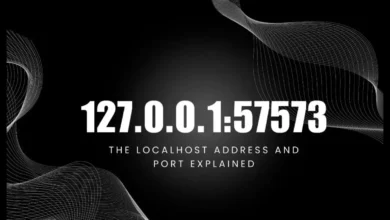The Debt Service Coverage Ratio (DSCR) mortgage has become a popular financing tool for real estate investors. Unlike conventional loans, which require proof of personal income, DSCR mortgages focus on the income generated by the investment property. This unique qualification method makes DSCR mortgages a viable option for individuals looking to expand their real estate portfolio without the limitations imposed by traditional income-based underwriting. However, like any financial product, DSCR mortgages come with advantages and disadvantages. This article will delve into the detailed pros and cons, helping you determine if a DSCR mortgage aligns with your investment goals.
What is a DSCR Mortgage?
A DSCR mortgage is a loan designed for real estate investors, allowing them to qualify based on the property’s cash flow rather than personal income. The DSCR is calculated by dividing the property’s net operating income (NOI) by its total debt obligations, including the mortgage payment. A DSCR greater than 1.0 indicates that the property generates sufficient income to cover the loan payments, which lenders typically require.
For instance, a DSCR of 1.2 means the property’s NOI is 120% of the debt obligations, suggesting a comfortable buffer. Most lenders prefer a DSCR ratio of at least 1.25, though some may accept lower ratios based on factors like the property type, location, and borrower experience.
Pros of DSCR Mortgages
- Easier Qualification for Investors
- One of the most attractive aspects of DSCR mortgages is the simplified qualification process for investors. Since approval is based on the cash flow of the property rather than personal income, investors with complex financial situations—like business owners and self-employed individuals—find DSCR mortgages accessible.
- This approach allows investors to add to their portfolios without stringent income documentation, which is often a barrier for traditional loans.
- No Need for Personal Income Documentation
- Unlike conventional loans requiring W-2s, pay stubs, and tax returns, DSCR mortgages bypass personal income documentation. For real estate investors who reinvest their profits and may not have stable income on paper, DSCR mortgages offer an ideal solution.
- This advantage allows investors to qualify even if they have fluctuating income or extensive tax write-offs, focusing solely on the property’s income.
- Greater Flexibility in Loan Terms
- DSCR mortgage lenders typically offer a wider range of terms compared to traditional loans. Options may include adjustable and fixed-rate mortgages, varying loan repayment periods, and flexible interest rates.
- Many lenders provide options that cater to both short-term and long-term investment strategies, allowing investors to select a loan structure that best suits their goals.
- Potential for Higher Loan Amounts
- Because DSCR mortgages focus on the property’s income potential, borrowers may qualify for higher loan amounts than they would through traditional financing.
- For well-performing properties in high-demand locations, DSCR loans offer an opportunity to secure additional capital, enabling investors to pursue more substantial real estate deals.
Cons of DSCR Mortgages
- Higher Interest Rates
- DSCR mortgages typically come with higher interest rates than conventional loans. Lenders take on additional risk by basing approval on the property’s income, leading to slightly higher rates.
- While these higher rates might not impact cash flow significantly, investors should account for the added cost over the loan’s term.
- Strict Property Requirements
- DSCR mortgage lenders often require the property to meet specific income and condition standards. Properties that do not produce sufficient income or require substantial repairs may not qualify.
- Investors should assess property viability carefully, as lenders may deny loans if the DSCR falls below acceptable levels, even with strong personal finances.
- Larger Down Payment Requirements
- Many DSCR loans require down payments of 25% or more, which can be a barrier for investors looking to leverage smaller upfront investments.
- Although some lenders offer lower down payment options, investors should expect higher percentages compared to owner-occupied properties, limiting access for some.
- Risk of Vacancy and Income Disruption
- Since DSCR mortgages depend on property income, any disruption—like vacancy, market downturns, or unexpected expenses—can impact the DSCR ratio and make it challenging to meet loan obligations.
- Investors should have contingency plans, such as reserve funds, to handle periods of low or no income, ensuring they can continue to meet payment requirements.
Comparing DSCR Mortgages to Traditional Investment Loans
- Qualification Process
- Traditional investment loans require extensive income verification, including tax returns and credit analysis, whereas DSCR loans only assess the property’s cash flow.
- This focus on property income simplifies qualification but demands well-performing properties.
- Loan Terms and Rates
- DSCR mortgages generally offer more flexible loan terms but come with higher interest rates. Investors must weigh these factors, as higher rates can influence long-term profitability.
- LTV and Down Payment Requirements
- Loan-to-value (LTV) ratios on DSCR loans are typically lower than conventional loans, resulting in higher down payments. This trade-off allows lenders to mitigate risk but requires more upfront capital from investors.
Who Should Consider a DSCR Mortgage?
- Experienced Real Estate Investors
- Investors with multiple properties and complex finances often find DSCR mortgages appealing, as they allow property expansion without income verification barriers.
- For those seeking to scale portfolios, DSCR loans provide a streamlined alternative to conventional financing.
- Self-Employed or Non-Salaried Individuals
- DSCR mortgages suit self-employed individuals and those without traditional salaries, as they bypass the requirement for personal income documentation.
- Investors with High-Cash Flow Properties
- High-performing rental properties benefit significantly from DSCR loans, allowing investors to leverage property income to qualify for larger loan amounts and expand their portfolios faster.
Alternatives to DSCR Mortgages
- Traditional Investment Loans
- Traditional loans may offer lower interest rates but come with stricter income verification and potentially limited access for non-traditional earners.
- Asset-Based Loans
- Asset-based loans focus on borrower assets rather than income, providing another option for those with substantial liquid assets.
- Portfolio Loans
- Portfolio loans allow investors to use multiple properties as collateral, which can be beneficial for those looking to leverage an entire portfolio rather than individual property income.
Conclusion: Are DSCR Mortgages Right for You?
DSCR mortgages offer a unique pathway for investors focused on property income rather than personal income. With benefits like simplified qualifications, flexible terms, and higher loan potential, they’re a valuable tool for seasoned investors and non-salaried individuals. However, the higher rates, down payment requirements, and property standards mean DSCR mortgages are not suitable for everyone. Prospective borrowers should weigh these factors carefully and consider alternatives to ensure the best alignment with their investment goals.




